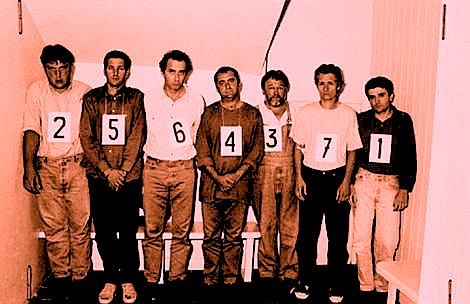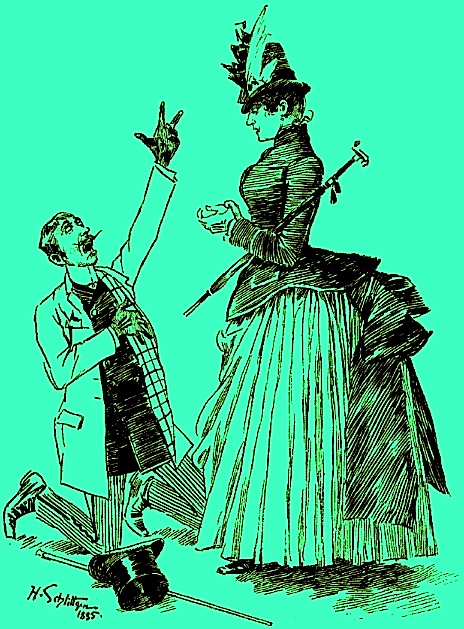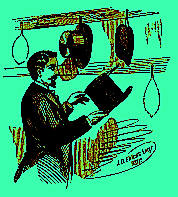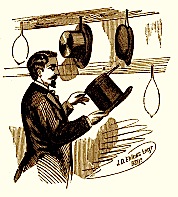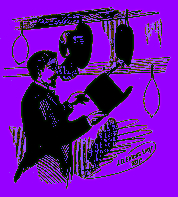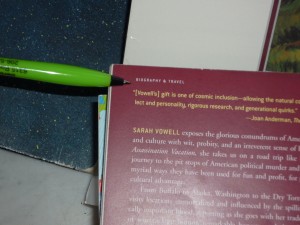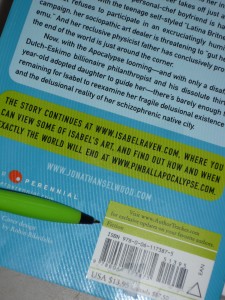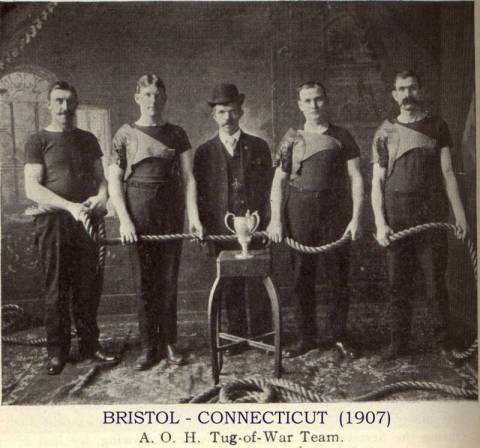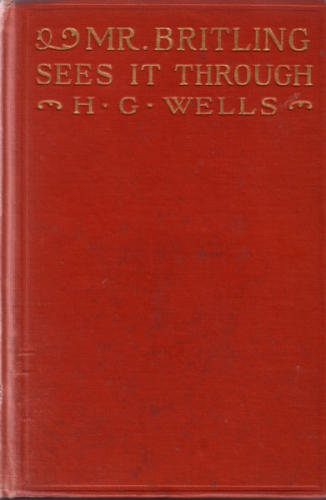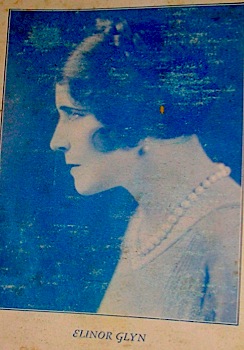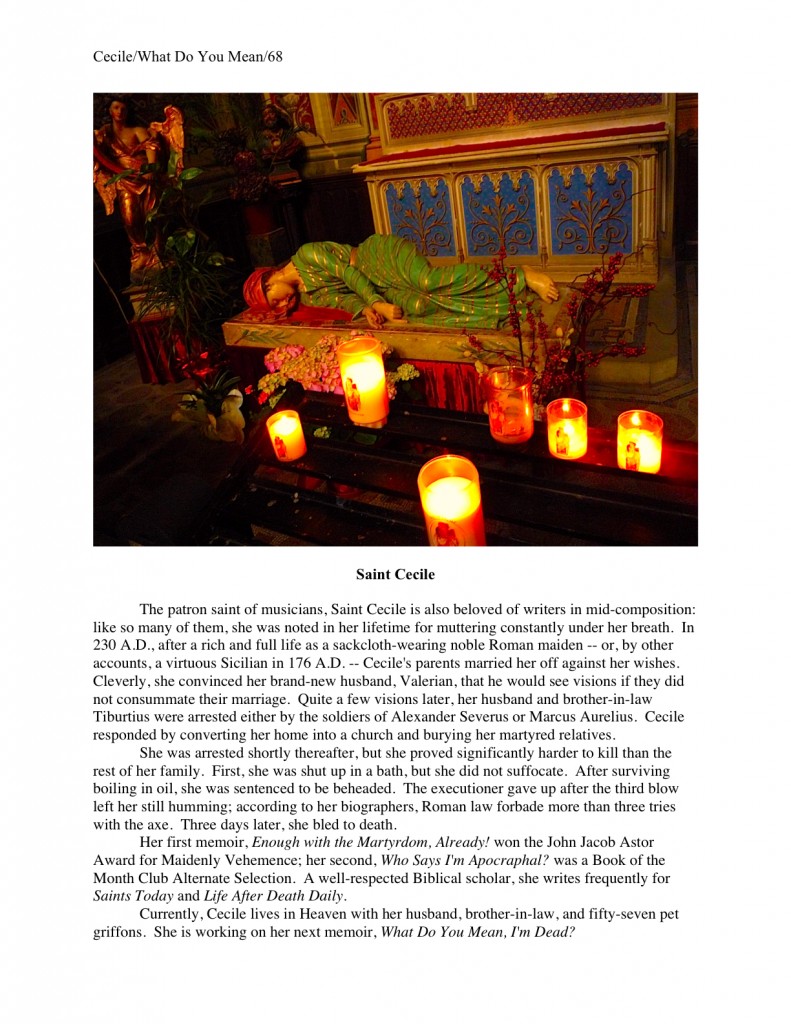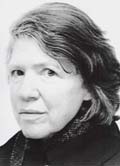
There I was, peacefully enjoying some well-deserved rest this weekend, when a prime specimen of that species so justly dreaded by writers, the hobgoblins of self-doubt, abruptly pulled up a pillow and sat down on my bed. “Um, Anne?” the wily fellow asked, playfully poking at my cat with his tail. “You know those last couple of posts about what to say and do when an agent calls and offers representation. What if some gifted writer out there mistakenly believes that the questions you recommended are the only ones it’s polite, reasonable, and necessary to ask?”
I yanked the pillow out from under him. “Demon Joe,” — that’s the name of the hobgoblin who specializes in tormenting advice-giving bloggers in the dead of night, so you’ll know should you ever run into him — “Author! Author!’s readers are much, much smarter than that. They know that just as every manuscript requires different revision, and that every book category requires a slightly different kind of agent, every offer from an agent and every subsequent conversation will differ. Now unhand my cat and get out of here.”
Demon Joe slithered across the comforter until he was nose-to-nose with me. “Perhaps. But did you talk about what a writer’s supposed to say if she has manuscripts out with other agents at the time that she receives the offer?”
“I talked about that indirectly,” I said defensively, extracting my cat’s tail from Joe’s grasp. “Last weekend, when I was discussing what to do if an agent asks for an exclusive while another agent is already reading the manuscript. You ought to remember — you yanked me out of bed to write it.”
“True enough.” Demon Joe stroked his small, pointed beard thoughtfully. “And I wouldn’t want to disturb your sleep. I Just can’t help worrying about whether an excited aspiring writer, burbling with glee over a phone call from a real, live agent, is going to be in any mood to, you know, extrapolate. But if you’re confident that you’ve covered all of your bases…”
I hate it when Demon Joe is right. If you’ve ever wondered why some of my posts bear timestamps at three or four in the morning, blame him.
I certainly do.
Here, then, is an extra-special bonus middle-of-the-night end-of-the-weekend post, devoted to that most burning of problems most aspiring writers pray someday to have: what you to say to an agent who wants to represent you, when one or more other agents are also considering your manuscript?”
Seem like an unlikely scenario? It isn’t, actually, for any aspiring writer sending out simultaneous submissions. Any time more than one agent is considering the same manuscript, one possible outcome — the best one, actually — is that the writer will need to say something along the lines of, “Gee, I’m flattered, but I’m afraid that I shall have to talk to the X number of other agents currently reading my book. May I get back to you in, say, two weeks?”
The very idea of saying that to an agent who wants to represent you made some of you faint, didn’t it? Believe me, I’ve been there.
Seriously, I have. I wish I had known from the very beginning that having more than one agent reading a manuscript at a time is actually a very good thing for a writer. At least, if all of the agents concerned are aware that they’re in competition over the book.
“What makes you do darn sure of that?” Demon Joe demands. “Stop eyeballing that head-shaped indentation in your pillow and share your experience.”
Okay, okay — I’ll tell the story, but then I’m going back to sleep. Everybody but me comfortable? Excellent. Let’s proceed.
Many years ago, I had just sent out a packet of requested materials — memoir book proposal plus the first three chapters of a novel — when another agent asked to see my book proposal as well. Naturally, when I sent off the second package, I mentioned in my cover letter that another agent was already considering the project.
Thanks, Demon Joe, but I’m way ahead of you on this one: all of you multiple submitters do know that you should always mention it in your submission cover letter if another agent is already reading any part of your manuscript or book proposal? And that you should always drop any agent already reading your work an e-mail if you submit your work to another agent thereafter?
Well, now you do.
Although I knew to be conscientious about that first part, back in those long-ago days of innocence, I was not aware of the second. Indeed, the hobgoblin of doubt dedicated to torturing aspiring writers waiting to hear back on their submissions — Demon Milton, if you must know his name — would have forbidden my acting upon it if I had known: unfortunately, the old conference-circuit advice about never calling an agent who hasn’t called you first was deeply engrained in my psyche.
In other words, I was too afraid to bug Agent #1 to let her know that Agent #2 was looking at my book proposal. Big, big mistake.
Okay, Demon Joe, stop battering my head with your tail: I’m going to show them how to avoid that particular pitfall before I reveal the hideous consequences of not playing by this particular not-very-well-known rule.
So what should I have done instead? If more than one agent asks to see my manuscript (or, in this particular case, book proposal), I should have informed all of them, pronto, so they could adjust their reading schedules accordingly.
No need to name names, of course, or even to go back and tell Agents #1 and #2 that Agents #4-6 also asked to see it a month later. All that any given agent in the chain needs to know is that she’s not the only one considering it.
But I didn’t know that; frankly, I was too tickled to have attracted so much interest. Having stumbled into this rather common error, I set myself up for another, more sophisticated one.
A month later, Agent #2 called me to offer to represent the book. Since Agent #1 had at that point held onto the proposal for over six weeks without so much as a word, I assumed — wrongly, as it turned out — that she just wasn’t interested. So I accepted the only offer on the table, and sent Agent #1 a polite little missive, thanking her for her time and saying that I had signed with someone else.
Demon Joe is prompting me to pause here to ask: did that sweeping, unjustified conclusion make you gasp aloud?
It should have, especially if you have been submitting within the last couple of years. Six weeks really isn’t a very long time for an agent to hold onto a manuscript, after all; now, six months isn’t an unusual turn-around time. But even back then, when about eight weeks was considered the outside limit of courtesy, I should not have leapt to the conclusion that Agent #1 had simply blown me off.
Two days later, the phone rang: you guessed it, an extremely irate Agent #1. Since she hadn’t realized that there was any competition over the project, she informed me loudly, she hadn’t known that she needed to read my submission quickly. But now that another agent wanted it, she had dug my materials out of the pile on her desk, zipped through them — and she wanted to represent it.
I was flattered, of course, but since I had already told her that I’d accepted another offer, I found her suggestion a trifle puzzling. I had, after all, already burbled an overjoyed acceptance to Agent #2. I couldn’t exactly un-burble my yes, could I?
Yet when I reminded her gently that I’d already committed to someone else, all Agent #1 wanted to know was whether I had actually signed the contract. When I admitted that it was in the mail, she immediately launched into a detailed explanation of what she wanted me to change in the proposal so she would be able to market it more easily.
Had I been too gentle in my refusal? What part of no didn’t she get? “I don’t think you quite understood me before,” I said as soon as she paused to draw breath; #1 must have been a tuba player in high school. “I’ve already agreed to let another agent represent this book.”
“Nonsense,” #1 huffed. “How could you possibly have made up your mind yet, when you haven’t heard what I can do for you?”
I’ll spare you the 15-minute argument that ensued; suffice it to say that she raked me over the coals for not having contacted her the nanosecond I received a request for materials. Agent #1 also — and I found this both fascinating and confusing — used every argument she would invent to induce me to break my word to Agent #2 and sign with her instead.
Unscrupulous? Not exactly. She was merely operating on a principle that those of you who have been following this series should have by now committed to heart: until an agent offers a representation contract and a writer actually signs it, nothing that has passed between them is binding.
As I so often tell first-time pitchers who have just been asked to send pages: until there’s a concrete offer on the table, that nice conversation you just had with that agent about your book is just that, a nice conversation.
Of course, #1 may have taken the axiom to heart a little too much — I had, after all, already said yes to another agent, somebody equally enthusiastic about my proposal — but as it turned out, I should have listened to her. I should also have done my homework better: Agent #2, a charming man relatively new to my book category, actually had very few connections for placing the book.
Yes, Demon Joe: that is something I might have learned had I asked him a few more questions before saying yes. Thank you for pointing that out. Now stop rolling around on my flannel sheets.
What happened here? Well, my initial mistake in not keeping both agents concerned equally well-informed allowed an agent who probably knew that acting quickly was his best chance of competing in a multiple submission situation to shut out a better-qualified agent by the simple expedient of asking first.
So what should I have done instead? Contacted Agent #1 as soon as I received the second request, of course — and called her before I gave Agent #2 an answer.
Admittedly, that second part would have required some guts and finesse to pull off; if #2 was deliberately rushing me to commit before I asked too many questions about his track record in selling my type of book, I doubt that he would have been particularly thrilled about my asking for some time to make up my mind. (His agency went out of business within the year, after all; he gave up on my proposal after showing it to only five editors. I received a letter from one of them, saying that he had not submitted it through the proper channels.)
In the long run, though, it would have clearly been far better for me and my book proposal had I taken the time to make sure that I knew what my options were before I took what I deemed to be an irrevocable step. (For a more tips on handling simultaneous submissions far, far better than I did that first time around, please see the WHAT IF MORE THAN ONE AGENTS ASKS TO SEE MY MANUSCRIPT? category on the archive list at right.)
The story does have a happy ending, however: fortunately, the next time I was lucky enough to be in this position, right after having won a major award for my memoir, I had the experience to know how to handle it. I was also fortunate enough to know several previous winners of that particular contest who were kind enough to give me excellent advice on what to do if I won. (It’s always worth tracking down past winners, if you happen to be a finalist: it’s amazing how nice most authors are one-on-one.)
Just so I can convince Demon Joe to remove his pitchfork from my foot region, let’s recap what a writer should do if more than one agent is considering a manuscript when a representation offer gladdens his heart:
(1) Thank the offering agent, but remind her that other agents are currently considering the manuscript.
That should not be news to her, right?(2) Ask for 3 weeks to check in with the others and make up your mind.
Since this is precisely what she would expect you to do for her if another agent had made an offer first, she should be fine with this. If she isn’t, offer not to commit to anyone else until you have spoken to her again — and set up an appointment a couple of weeks hence to do just that.Why as much as three weeks? Because it’s entirely possible that none of the other agents have yet so much as glanced at the manuscript. You don’t expect them to make a representation decision before they’ve read your book, do you?
Demon Joe likes that so much that he’s doing a little jig on my bedroom slippers. “Let me be the one to draw out the implication here: yes, some agents who are aware that a manuscript is being multiply-submitted will wait to hear that someone else has made an offer before they give the manuscript a serious once-over.”
The hobgoblin in charge of that particularly nasty (from the writer’s point of view, anyway) game of chicken is called Harold, in case you were wondering. You might want to mutter at him under your breath, should you ever be the writer caught in this situation.
Which is, lest we forget, a good outcome for a submitter. Back to our to-do list:
(3) Then ask all of the other questions you would have asked Agent #1 if she had been the only agent to whom you submitted.
You want to have a basis to decide between her and any of the other agents who say yes, don’t you?(4) As soon as you get off the phone with #1, e-mail ALL the other agents currently reading any part of your manuscript. Let them know that you have had another offer — and that if they are interested, you will need to hear from them within the next ten days.
Seem fast? It is. It’s also a reasonable amount of time for a rush read, and it gives you a little leeway if any of the other agents needs more time.After all, the fact that others are reading it isn’t going to come as a surprise to any of them, right? Besides, you don’t want to keep Agent #1 waiting too long, do you?
Stop poking me in the kidneys, Demon Joe. I was getting to the leeway issue.
It’s not uncommon for agents in this situation to ask for more time to read your work. That’s up to you, but do be aware that if you grant extensions, you’re going to have to tell Agent #1 about them.
Doesn’t sound like such an attractive prospect, does it? Wouldn’t you rather build a little extra time into your arrangement with #1, so #2-16 can miss the mark by a few days without sending you into a nail-gnawing panic?
(5) Try to obtain similar information from every agent who makes an offer.
That way, you will be comparing apples to apples, not apples to squid. So if you ask one for a client list — and you should — ask each one that makes an offer. If you talk to a client of #1, talk to #3′s client as well. Otherwise, it’s just too tempting to sign with the one who spontaneously offered you the most information — who may or may not be the best fit for your work.(6) Make up your mind when you said you would — or inform everyone concerned that it’s going to take a little longer.
But don’t push it too long, and don’t try to use what one agent has said to hurry another. (Over and above simply informing them that another has made an offer, that is.) This is not a bargaining situation; it’s a straightforward collection of offers from businesspeople about whom you should already have done your homework.And try not to move the deadline more than once. Why? Well, you’re going to want to have a pleasant working relationship with whomever you choose — and although writers often feel helpless when torn between competing agents, that is not how they will see it. The last impression you
(7) After you’ve chosen, inform the agent with whom you will be signing first.
This is basic self-protection, especially if you’ve had to push the decision deadline back more than once. It’s unusual for an agent to change her mind after making an offer, but if she does, you will be a substantially happier camper if you have other offers in reserve.(8) After you have sealed the deal with your favorite, inform the others promptly and politely.
Do this even if some of the others didn’t bother to get back to you at all — some agents do use silence as a substitute for no, but it’s not courteous to bank on that. They honestly do need to know that they’re no longer in the running.Resist the urge — and believe me, you will feel it — to explain in thanks, but no thanks e-mails why you selected the agent you did. The agenting world is not very big, after all, and the other agent(s) really don’t need to know anything but that you have indeed made a decision.
Above all, make sure to thank them profusely for their time. After all, they were excited enough about your writing to consider representing you; don’t you want them to buy your book when it comes out?
Hey, my cats are asleep, my various body parts seem to be free of pitchforks, and the hobgoblin all-clear has sounded. (It sounds a lot like a snore from my SO.)
That means it’s time for me to turn in, campers. Good night, sleep tight, and don’t let the hobgoblins of self-doubt bite. Oh, and keep up the good work!
